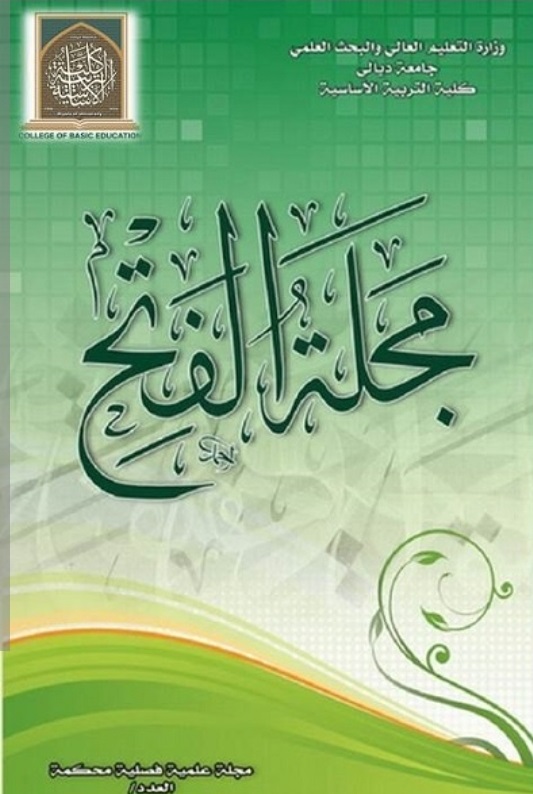The Relationship between Self-Efficacy and Anxiety, and Preparatory-Year Students' Achievement in EFL
Abstract
Abstract :
The major purpose of this study was to investigate the relationship between self-efficacy and FL anxiety with the achievement of prep-year students at IAU. A sample of 151 participants volunteered for this study representing about 19% of the total population of the preparatory year students at Imam Abdulrahman Bin Faisal University - IAU. Both boys and girls completed two surveys, FL Self-Efficacy and FL Anxiety; validity and reliability were established for both measures. The results of the study showed that FL anxiety positively correlated with students' achievement and it may be used for predicting students' achievement (it explained 9.4% of students' achievement). But, self-efficacy failed to predict achievement in this study. It predicted only 6.7% of students' achievement and no correlation between self-efficacy and achievement existed at the significance level of α = 0.05.
References
References
Akbari, M. &Sadeghi, M. (2013)."Foreign Language Learning Anxiety: The Case of Iranian Kurdish-Persian Bilinguals". International Research Journal of Applied and Basic Sciences, 4(9).
Al-Saraj, T. (2011).Exploring foreign language anxiety in Saudi Arabia: a study of female English as foreign language college students (Unpublished doctoral dissertation).Institute of Education, University of London.
Al-Saraj, T. (2014). Revisiting the foreign language classroom anxiety scale (FLCAS): The anxiety of female English language learners in Saudi Arabia. L2 Journal, 6, 50-76.
Bandura, A. (1995). Self-efficacy in changing societies. Cambridge: Cambridge University Press.
Bembenutty, H. (2006). Self-regulation of learning.
Academic Exchange Quarterly, 10(4), 1.
Coronado-Aliegro, J. (2006). The effect of self-assessment on the self-efficacy of students studying Spanish as a foreign language. Unpublished doctoral dissertation. University of Pittsburgh.
Durndell, A. & Haag, Z. (2002).Computer self-efficacy, computer anxiety, attitudes towards the Internet and reported experience with the Internet, by gender, in an East European sample. Computers in Human Behavior, 18: 521–535.
https://www.journals.elsevier.com/computers-in-human-behavior
Gould, J. (2012). Learning theory and classroom practice in the lifelong learning sector. 2nd Edition. California: Sage Publications Inc.
Kaim, D. (2013). An exploratory study on self-efficacy beliefs of EFL students` listening comprehension. Master theses submitted to Graduate School of Social Sciences, Girne American School.
Koch, A. S., & Terrell, T. D. (1991).Affective reactions of foreign language students to natural approach activities and teaching techniques. In E. K. Horwitz & D. J. Young (Eds.). (1992). Language anxiety: From theory and research to classroom implications (pp. 109–126). Englewood Cliffs, NJ: Prentice Hall.
MacIntyre, P. D. & Gardner, R. C. (1994). The effects of induced anxiety on cognitive processing in computerized vocabulary learning. Studies in Second Language Acquisition, 16, 1-17
Horwitz, E. K. (2001). Language anxiety and achievement. Annual Review of Applied Linguistics, 21, 112-126.
Horwitz, E. K. (2010). Foreign and second language anxiety. Language Teaching, 43, 154-167.
Horwitz, E. K., Horwitz, M. B., & Cope, J. (1986). Foreign language classroom anxiety. The Modern Language Journal, 70, 125-132.
Saif, A. (2014), The Relationship between self-efficacy, motivation, and academic achievement of undergraduate students in Yemen. Scientific Journal for the College of Education, Asyout University, Vol. 30, Issue (1).
Tschannen-Moran and Hoy (2001), "Teacher efficacy: capturing an elusive construct". Teacher and Teacher Education, 17, 783-805.
Downloads
Published
How to Cite
Issue
Section
License
Copyright (c) 2017 مجلة الفتح

This work is licensed under a Creative Commons Attribution 4.0 International License.
حقوق النشر والترخيص
تطبق مجلة الفتح للبحوث التربوية والنفسية ترخيص CC BY (ترخيص Creative Commons Attribution 4.0 International). يسمح هذا الترخيص للمؤلفين بالاحتفاظ بملكية حقوق الطبع والنشر لأوراقهم. لكن هذا الترخيص يسمح لأي مستخدم بتنزيل المقالة وطباعتها واستخراجها وإعادة استخدامها وأرشفتها وتوزيعها ، طالما تم منح الائتمان المناسب للمؤلفين ومصدر العمل. يضمن الترخيص أن المقالة ستكون متاحة على نطاق واسع بقدر الإمكان وأن المقالة يمكن تضمينها في أي أرشيف علمي.
لمزيد من المعلومات، يرجى متابعة الرابط: https://creativecommons.org/licenses/by/4.0/.



